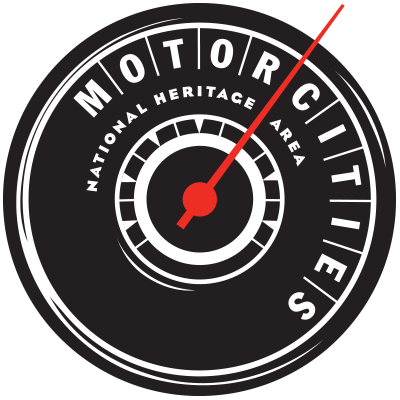By Robert Tate, Automotive Historian and Researcher
Images Courtesy of Chrysler Archives, Ford Archives, General Motors Media Archives, NASCAR and the Robert Tate Collection
Published 7.8.2020
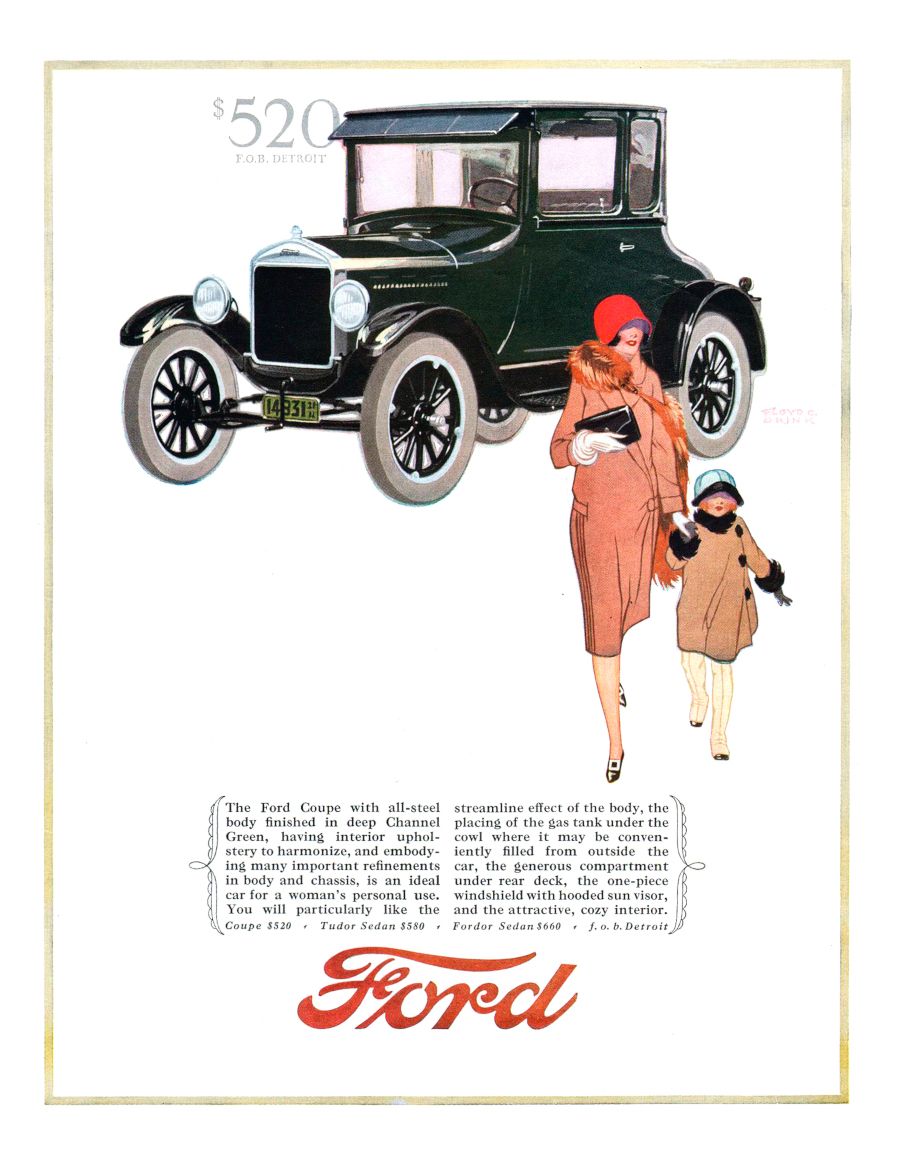 1926 Ford Model T Coupe Ad (Robert Tate Collection)
1926 Ford Model T Coupe Ad (Robert Tate Collection)
The history of women in the automotive industry over more than 100 years has evolved from being featured in advertising in the early days to professionals who run automakers, design or engineer products, or even race cars.
During the late 1910s and the early 1920s, women were becoming more independent as it related to everyday transportation and traveling. During the 1920s, women began owning their own automobiles, and the Ford Motor Company was having great sales success with the Model T. This car helped many women move beyond the home and into the driver’s seat. The Ford advertisement above features a mother and daughter with the 1926 Ford Model T with an all-steel body and the message “an ideal car for a women’s personal use.”
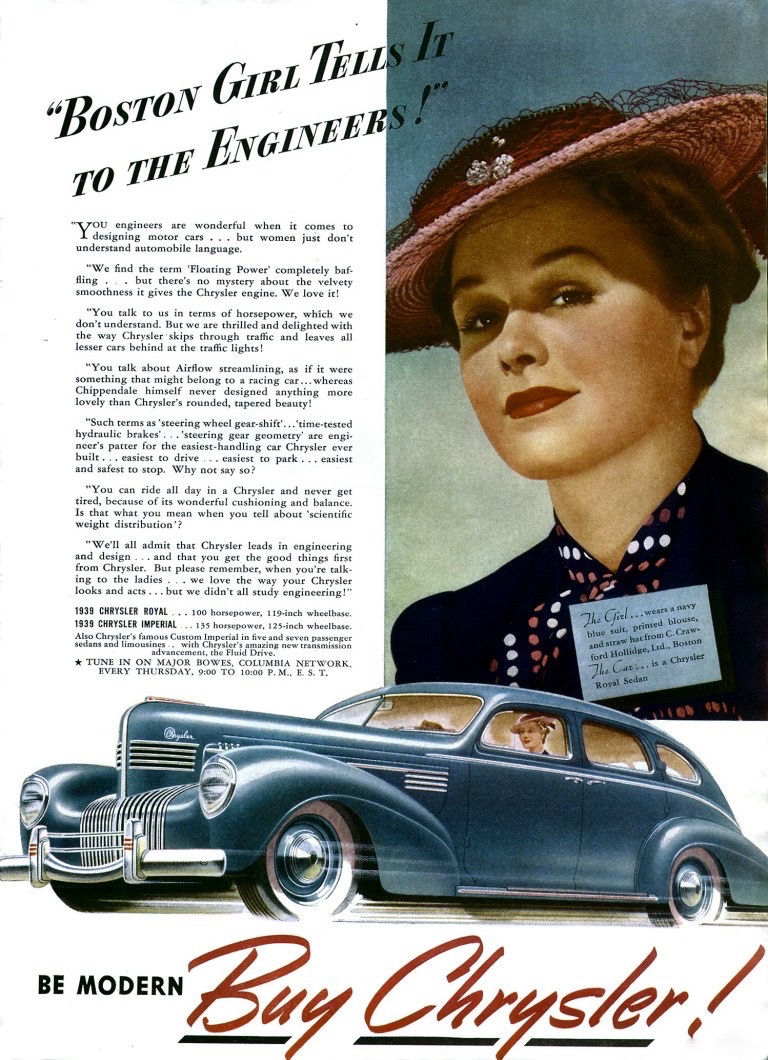 1939 Chrysler ad (Robert Tate Collection)
1939 Chrysler ad (Robert Tate Collection)
During the 1930s, Chrysler introduced women in their advertising that looked like movie stars. The ad above for the 1939 Chrysler also highlighted engineering and design. The advertising features a woman with the headline, “Boston girl tells it to the engineers” and equates the idea of “modern” with Chrysler.
During World War II, “Rosie the Riveter” became a great and honorable symbol for American women everywhere. Even today, that poster campaign is still recognized by many cultures all over the world.
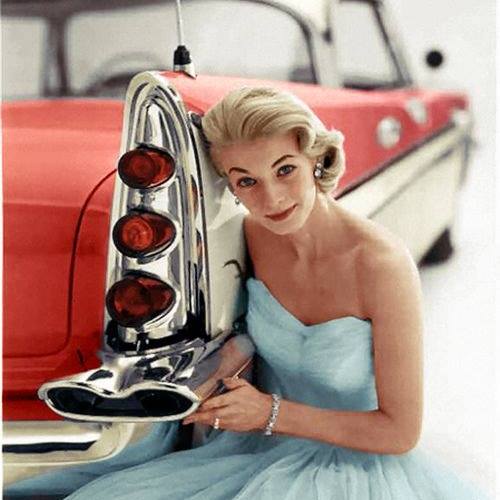 1958 DeSoto advertising photo (Chrysler Archives)
1958 DeSoto advertising photo (Chrysler Archives)
The 1950s brought glamour and glitz to the automobile industry. More tail fins and chrome became key American car industry design themes. In 1957, Chrysler introduced many stylish automobiles, including the 1958 DeSoto. In the above advertising image, the taillight is highlighted as an important feature for the 1958 DeSoto with a female model.
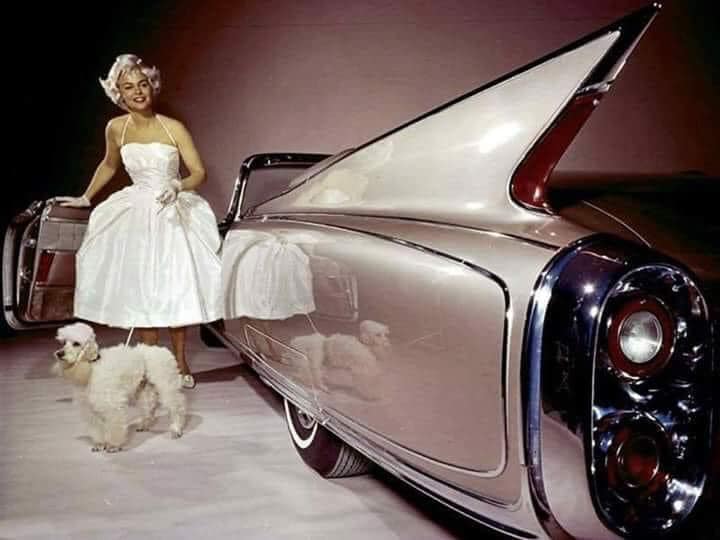 1960 Cadillac Eldorado Biarritz Convertible (GM Media Archives)
1960 Cadillac Eldorado Biarritz Convertible (GM Media Archives)
One of the most interesting advertising images for General Motors was this publicity photo taken when Cadillac was introducing the new 1960 Eldorado Biarritz convertible. This iconic image tells a great story about a beautiful automobile with a lady and her dog, illustrating a golden age of automotive advertising.
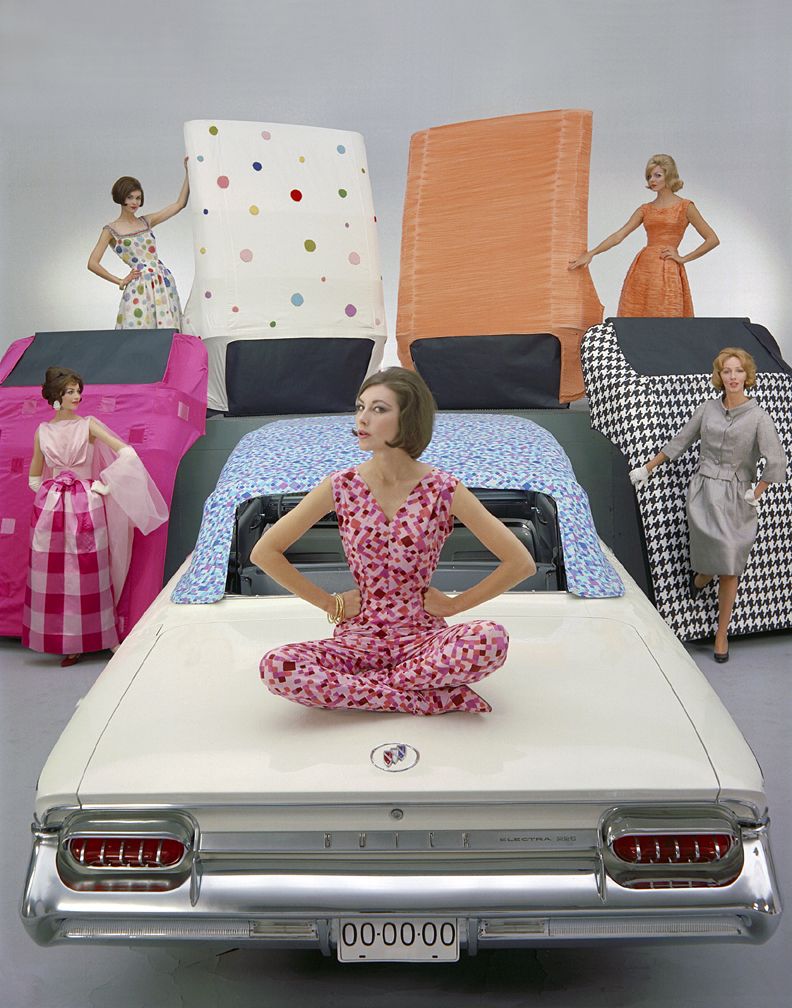 1961 Buick Convertible tops (GM Media Archives)
1961 Buick Convertible tops (GM Media Archives)
The 1961 Buick advertising featured several convertible top proposals that were both stylish and colorful. Reflecting fashion trends during the early 1960s and influence of women like First Lady Jacqueline Kennedy, Detroit automakers were launching new advertising campaigns to attract more women buyers.
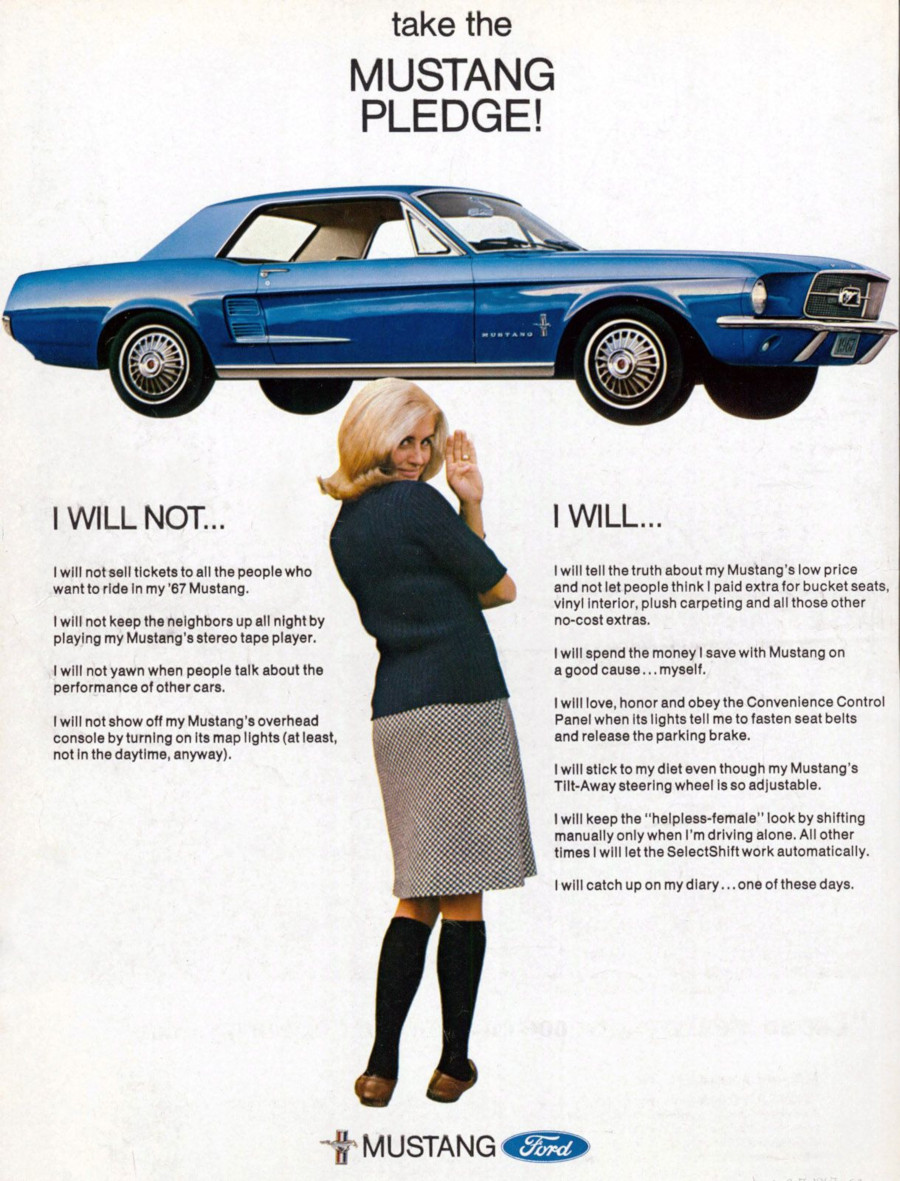 1967 Ford Mustang ad (Robert Tate Collection)
1967 Ford Mustang ad (Robert Tate Collection)
Ford’s Mustang advertising during the 1960s and early 1970s was successful in attracting many female drivers. This Mustang ad titled “Take the Mustang Pledge” is one example. One of the most popular television shows during the 1970s was “The Mary Tyler Moore Show” on CBS. In the opening of the show, Mary drives a 1970 Mustang.
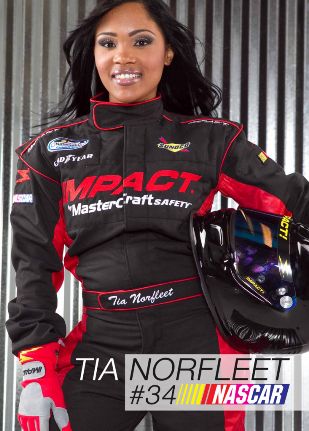 Tia Norfleet (NASCAR)
Tia Norfleet (NASCAR)
Bringing the story up to the present day, Tia Norfleet is the first African American female NASCAR driver. She is also the daughter of race car driver Bobby Norfleet.
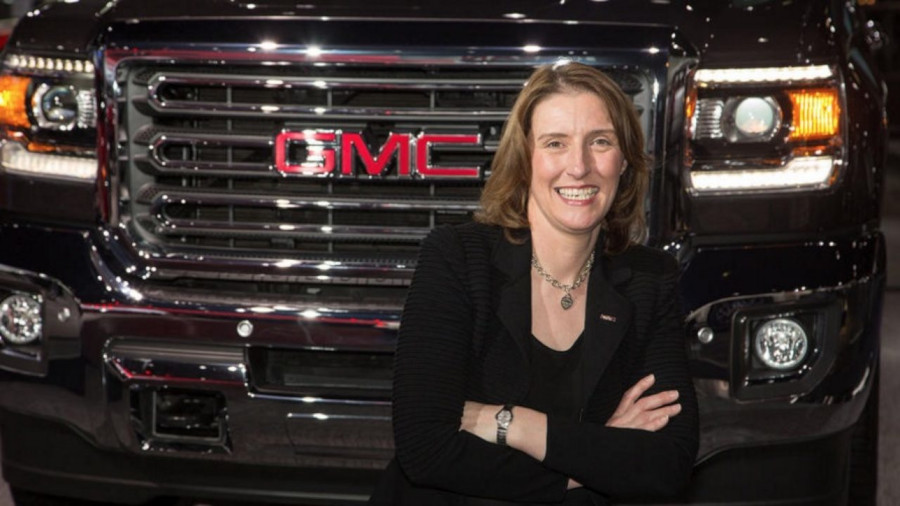 Helen Emsley Head of GMC and Buick Design (GM Media Archives)
Helen Emsley Head of GMC and Buick Design (GM Media Archives)
Helen Emsley is a leader at General Motors, who heads up design for GMC and Buick. Her portfolio over the years ranges from designing trucks to Corvette interiors.
In conclusion, for the past 100 years, women have been a part of our heritage when it comes to automobile advertising. Over time, advertising sometimes has shown more than products and often serves as a reflection of our great community and culture.
Bibliography
Stern, Michael & Jane. “Auto Ads.” Random House New York, 1978.
Lewis, David L., and Raubauser, Bill. “The Car and the Camera.” The Detroit Institute of Arts.
Tia Norfleet. NASCAR Archives.

